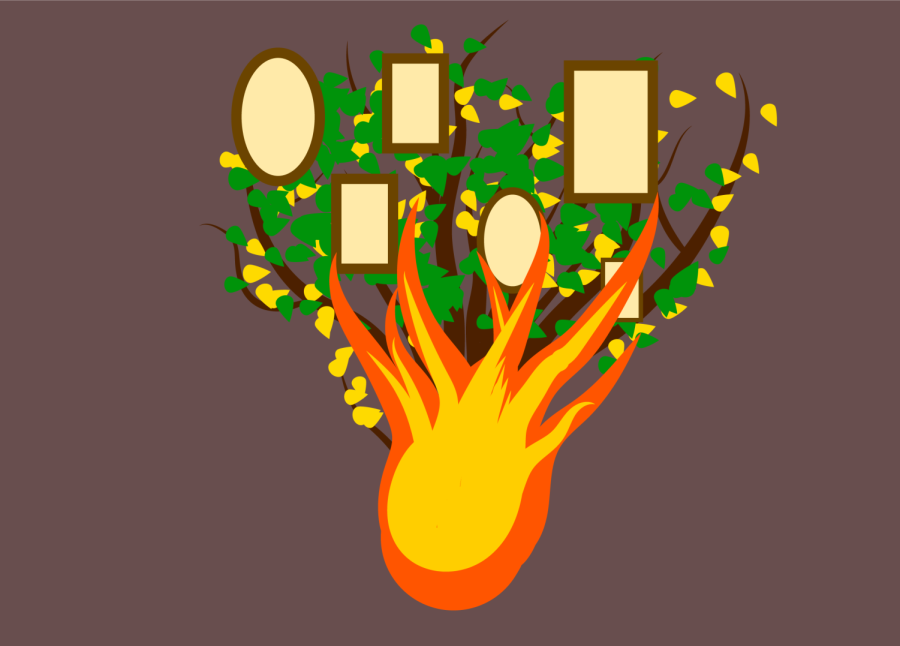DI Voices | Acknowledging my forefather’s harmful bigotry | II
Dec 3, 2021
When my mom learned her great-grandfather Oliver had been in the Ku Klux Klan, she was stunned. With the love for genealogy I have, it came as a shock to me, too. However, rather than burying this fact, I am confronting it in hopes of encouraging a broader collective accountability among white people.
Recently, I discussed such issues with Tiffany Payne, secretary of the Central Black Student Union and senior in the UIC College of Nursing. Digging into why she thinks people are afraid to admit what their ancestors have done, Payne reflected on how such admissions connect to privilege.
White people know acknowledging racist histories would validate the anger of oppressed people, she explained. As such, white people have often chosen to ignore these histories to ensure they reside on top of the social food chain and keep their privileges.
Denying history, Payne added, reproduces past discriminations and inequalities. Police brutality against Black people, for example, is still relevant today because white people ignore the long history of said brutality in America.
Likewise, minimizing my great-great-grandfather’s evils would allow his white supremacist ideals to live on in my thoughts, words and actions. While acknowledging the past helps, there are many inequalities only tangible action can repair. Given this fact, Payne named two components of improving conditions for Black people: education and opportunity.
Get The Daily Illini in your inbox!
Pointing to what many Americans are taught about Thanksgiving, Payne advocated for an unfiltered telling of the country’s history. Earnestly looking at the full extent to which Black people have been oppressed in the United States allows us to note similarities between modern and past ills, providing a chance to set a course for a more peaceful future.
To improve opportunities for Black people, Payne named a myriad of aids, from supporting Black-owned businesses to lowering barriers for first-generation college and trade school students.
Foremost among her suggestions was providing resources like child care subsidies in highly policed, predominantly Black areas. Such programs would alleviate the financial pressures pushing many to commit crimes while improving Black people’s well-being and decreasing exorbitant police budgets.
Yet, losing sight of progress made is easy when focusing on things one must still change. This is why I closed my interview by asking Payne what positive changes for Black people she sees happening already.
Currently bringing her the most hope is the push to support Black-owned businesses and historically Black colleges and universities — in her words, “Stuff that was made for us, by us.”
While this tangent seems to stray away from ancestral accountability, unbreakable ties are binding what my ancestors have done to what I must do now to help resolve the troubles and suffering they have caused. The only way to know what I should do is to ask what must be done.
As Payne told me, speaking the truth about my ancestors is a good start. However, substantive change requires more than just honesty.
Not only must I talk about my ancestors, but I must also use my voice to call out ongoing injustices. One such injustice is the floundering investigation into the murder of Jelani Day, a 25-year-old Black graduate student of Illinois State University.
Already, The DI’s editorial board has implored authorities to deliver justice to the grieving Day family, while Features Editor Gwyn Skiles has provided excellent coverage on the developing situation.
By discussing what my great-great-grandfather has done and what is happening to the Day family, I return to what Payne said: Ignoring the past allows oppression to continue.
Hopefully, I can make at least some small contribution to flattening the sprawling obstacles sitting between Black people and prosperity equal to that of their white neighbors.
Jude is a senior in LAS.






